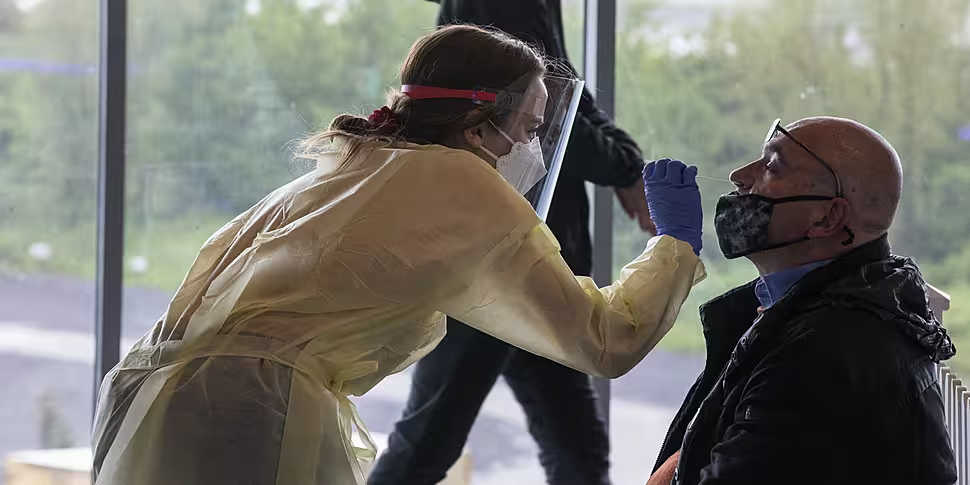COVID-19 antigen tests are best used as an additional risk reduction tool and not as a means for someone believing that they're not infectious.
That's according to Professor Paddy Mallon, an infectious diseases consultant at St Vincent’s Hospital in Dublin and professor of Microbial Diseases at UCD.
He believes that rapid tests can play a key role in the fight against coronavirus if used they are used correctly and appropriately.
Antigen tests, which recently went on sale in Lidl, get a result quicker but are not as accurate as other types of coronavirus tests, such as the PCR.
The Chief Medical Officer Dr Tony Holohan has strongly recommended against people buying and using antigen tests themselves.
It comes after NPHET's modelling expert Professor Philip Nolan compared antigen testing to snake oil in a recent tweet.
Meanwhile, the World Health Organisation warned that people could be making "inappropriate decisions" if they rely on a negative result from a COVID-19 antigen test.
Dr Margaret Harris from the WHO told Newstalk Breakfast with Susan Keogh said that people could get false reassurance from the result of an antigen test.
But speaking to On The Record with Gavan Reilly today, Professor Mallon said that antigen tests can be a useful tool in identifying if someone is infectious.
"I think there's been a lot of confusion about this over the past week and we're in a particularly difficult scenario in the country at the moment in that we have EU-approved tests that are being made available to the public and we have these tests that have been around since September," he said.
"They are being used in a number of circumstances around the globe, and they're being used for a specific purpose.
"Within the scenario where you have these tests available, I think there is an obligation, as the CMO said, that the message gets out there that these tests need to be taken and used appropriately."
Professor Mallon added that they don't need to be administered by professionals, as the antigen tests are not difficult to carry out.
"But having said that, one of the issues where tests start to fall down is if they're not administered appropriately," he said.
"If the swab isn't taken appropriately, if the test isn't done right, for example, if the test is read too late that might give false-positive results.
"As the CMO said very clearly, and I agree with him 100%, is where these tests are best used is if someone is taking a decision to do something that they think may carry a risk, then it can be used as a risk reduction.
"These tests should not be used as a means of someone believing that they're not infectious and therefore they don't need to adhere to public health advice."
Visiting relatives today. No symptoms. Used approved #antigen test. Done correctly - read at 15mins. I am now at least 99.8% certain that I am not infectious today. Now I’m happier going to visit. That’s what the science tells me. Simple. #COVID19Ireland pic.twitter.com/N3punNnD7v
— Paddy Mallon (@HIVTox) May 14, 2021
Antigen tests are "best designed as an additional risk reduction tool", Dr Mallon added.
He explained: "When you look at the science behind them, where these tests work best is to identify someone who is infectious and when you use them in that context, I think they're a very useful tool, especially as we're coming out of restrictions, where people may be mixing more, as a means to reduce transmission further.
"No one is suggesting that these tests should be used for people with symptoms, we have a very good PCR screening system in the country to pick up people who have symptoms.
"The scenario I'm talking about is asymptomatic people where there's a background prevalence of the infection, that's what drives waves.
"Around 30% of people who have SARS‑CoV‑2 have no symptoms and at the moment there is no testing programme, apart from isolated walk-in testing programmes, for people who are asymptomatic.
"In a setting where you have no testing and you say, 'Is this test better than no test', well this test will pick up 50% of those cases, no tests will pick up 0% of those cases, and that's the basis of it."









